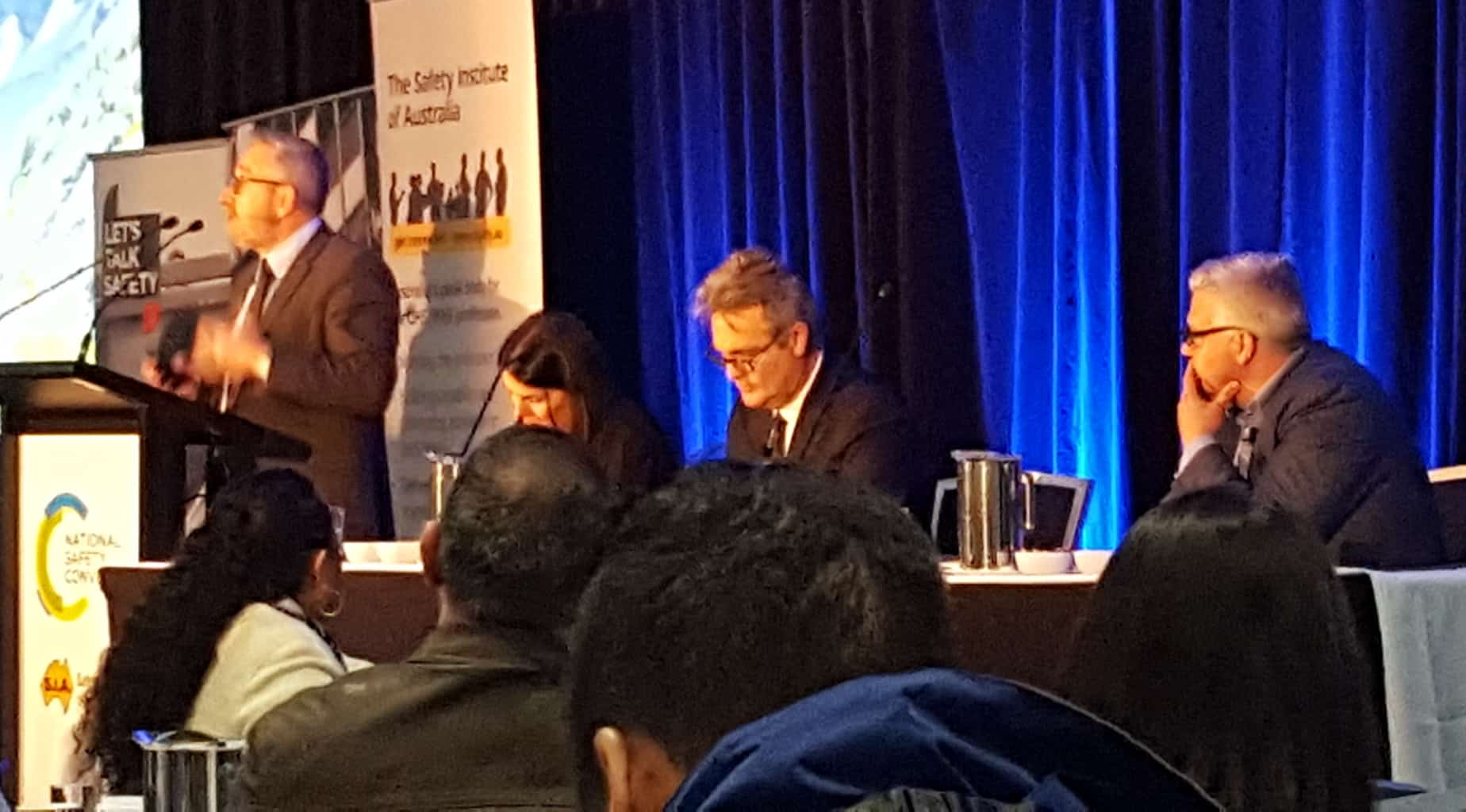The second session of the SIA National Convention is flatter than the the first, not because it is not interesting but because it is providing us with the social context for occupational health and safety (OHS) rather than challenging the OHS profession.
Bernard Salt is a very high profile demographer whose job is almost entirely about providing social context to whatever we do. He mentioned OHS specifically only four times and then primarily to do with driving trucks but the age data Salt presented shows the need for improvement in the health and wellbeing of the workforce so that quality of life can extend in line with the extended period of our lives.
 Peter Gahan (pictured right, speaking)of the Centre of Workplace Leadership is a regular speaker at the Safety Institute of Australia’s conferences. His outline reflects the theme of this conference by disrupting our sense of security and career.
Peter Gahan (pictured right, speaking)of the Centre of Workplace Leadership is a regular speaker at the Safety Institute of Australia’s conferences. His outline reflects the theme of this conference by disrupting our sense of security and career.
The challenge comes from how we respond to this unease. If we curl up on the couch to binge watch a show, the career is over. We need to look for the opportunities that the disruption offers but this may require us to reassess, if not throw out, the foundations of our profession or the dreams on which we chose our career.
Richard Coleman is well known in the Australian OHS profession through his prominent safety career. His attraction as a conference speaker was on display because he was able to adjust his presentation to accommodate the examples and context that previous speakers addressed. Coleman focused on the digital disruption, particularly as it affects blue collar occupations. He believes that some of these jobs will go within the next five years.
Coleman’s focus on digital disruption provided a great summary of the OHS application of augmented reality and wearable technology. The latter has the best opportunity for safety improvement, particularly in the area of manual handling. Sensor technology can provide better levels of information and in real time that allows immediate interventions at times of great risk.
What these speakers and the panel are all about is to think creatively and think big. Fantasise about your job and the tasks you do now and whether they will exist in ten years and how you can change them now to prepare for the future. If your job leads to a dead-end, change the job. It seems easier to do this now, than ever before



